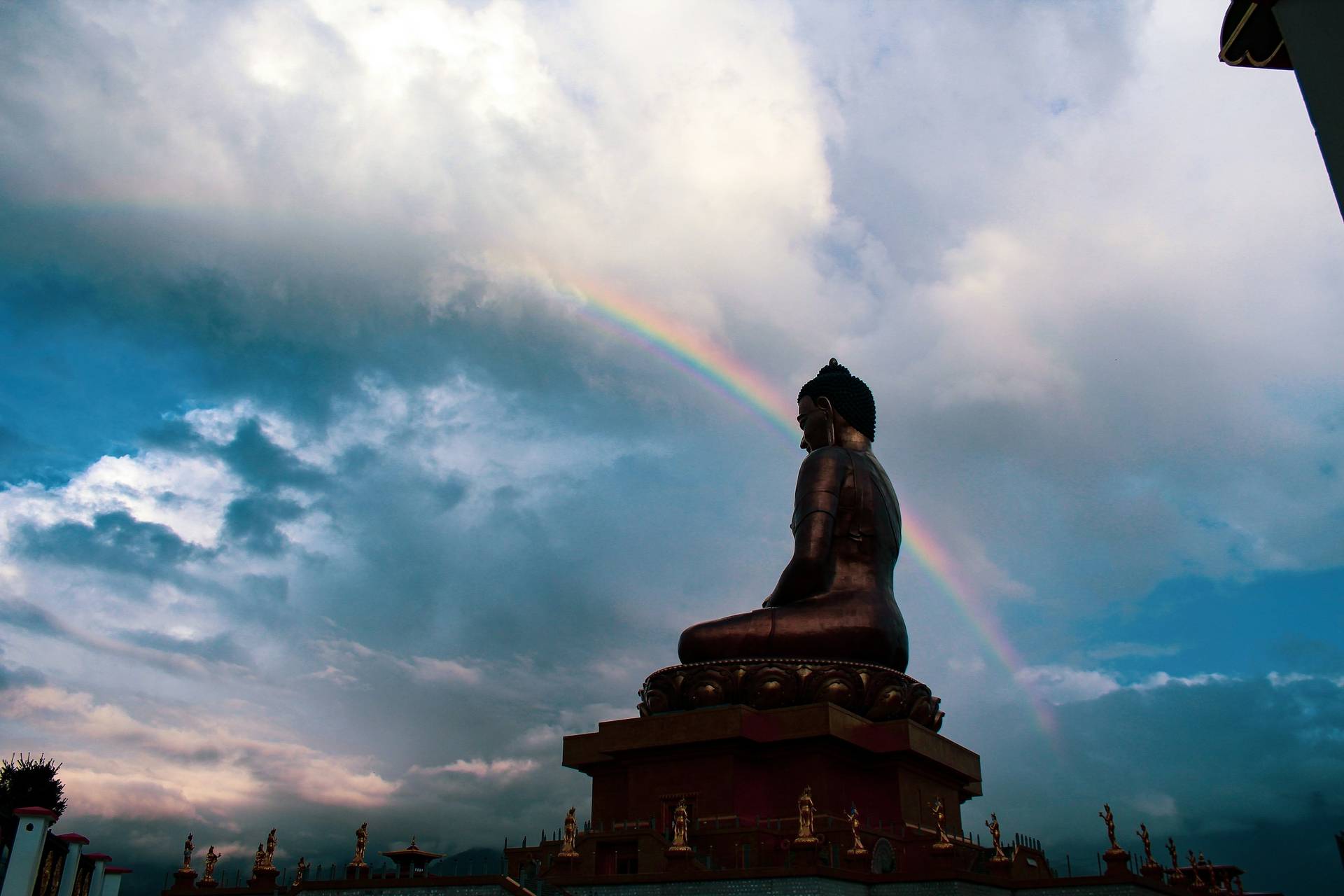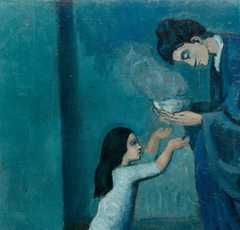
The Buddha’s Four Noble Truths: the Cure for Suffering
Around 2,500 years ago, the Buddha offered his Four Noble Truths: that we live in an ongoing state of dissatisfaction, that this dissatisfaction has a cause, that it can cease, and that there is a path to bringing about its cessation...

Around 2,500 years ago in northern India (now modern day Nepal), a prince named Siddhartha Gautama left his life of luxury and set out to find a solution for human suffering.
He wandered for years, failing to make progress; until one night, after tying himself to a fig tree, meditating relentlessly, and experiencing a night-long vision of what the world really is, he finally achieved enlightenment.
From this point on, Siddhartha was now ‘Buddha’ (literally meaning ‘the awakened one’), and he spent the next 45 years traveling to share his philosophy.
The Buddha packaged his core lessons into what’s become known as the ‘Four Noble Truths’.
These truths are recorded in a key sutta entitled (in Pali) Dhammacakkappavattana Sutta, meaning ‘The Setting in Motion of the Wheel of Teaching’ — the first sermon given by the Buddha after his enlightenment.
The Buddha speaks to five monks in a place called Deer Park. He first offers his ‘Middle Way’ — his idea that enlightenment is not to be found through extreme indulgence, nor extreme asceticism, but through a middle path of moderation.
In other suttas, this lesson of avoiding extremes is applied not just to lifestyle but to all behavior.
The Buddha then offers the Four Noble Truths. In short, these are:
- There is dukkha (suffering)
- Suffering has a cause
- Suffering can be eliminated
- There is a path to eliminating suffering (the Eightfold Path)
Let’s consider each in a bit more detail.
1. There is dukkha (suffering)
The Pali word dukkha is quite difficult to define: traditionally translated as suffering, some translations render it as ‘dissatisfaction’ or ‘unease’.
Essentially, dukkha captures all of life’s disappointment, stress, discomfort, pain, unfulfilled hopes, and unhappiness — from small everyday anxieties to significant loss.
When offering this first of the Four Noble Truths, the Buddha elaborates:
Birth is suffering, decay is suffering, illness is suffering, death is suffering, to be united with the unpleasant is suffering, to be separated from the pleasant is suffering, not to get what one desires is suffering.
In other words, we suffer often throughout our lives, and rather than pretend otherwise we must frankly face up to this: suffering exists — and comes in many forms.
Even if you are happy, this happiness will end. Even if you are full of love for the people in your life, you and those people will one day die.
While Buddhists work towards ending suffering, the first step is to acknowledge it is there.
Living in denial about the nature of reality — or seeking to avoid it through temporary solutions — will only create more suffering, which brings us to the second truth.
2. Suffering has a cause
The Buddha elaborates:
It is craving (tanha) which renews being, and is accompanied by desire and lust, desire for this and that. In other words, craving for sensual pleasures, craving to be, craving not to be.
The reason we suffer is because of how attached we are to certain desires. (Some scholars translate ‘tanha’ as ‘desire’ rather than craving, which can be misleading. The Buddha is not saying all desire is the problem — we have natural desires to eat and drink, for instance — just that forming unhealthy attachments to our desires, becoming misled or enchanted by them, is when the problems start).
Craving the fulfillment of our desires causes suffering. If we feel a need to achieve certain goals, acquire certain items, be popular with certain people, indulge certain pleasures — then we are just setting ourselves up for more suffering.
For, even if we obtain everything we want, we’ll soon crave something new, and never quell the background buzz of dissatisfaction brought on by the craving / acquisition cycle.
As long as we continue to view reality through the lens of self, desire, and attachment, this cycle of suffering will never end, the Buddha warns, which brings us to the third truth.
In one concise email each Sunday, I break down a famous idea from philosophy. You get the distillation straight to your inbox:
💭 One short philosophical email each Sunday. Unsubscribe any time.
3. Suffering can be eliminated
The Buddha elaborates:
It is the complete stopping of this craving, the elimination of passions so that craving can be laid aside, given up, harbored no longer, and gotten free from.
When there is no craving, there is no suffering: it’s as simple as that. Eliminating craving is thus the whole task of Buddhism.
Of course, simple doesn’t mean easy. Purging ourselves of all attachment is a mammoth undertaking. It means facing up to and dismantling absolutely fundamental attitudes and ways we have of experiencing the world.
Thankfully, the Buddha provides a path.
4. There is a path to eliminating suffering (the Eightfold Path)
The Buddha elaborates:
There is a path that leads to the cessation of suffering: it is, indeed, the Noble Eightfold Path: right views, right intentions, right speech, right actions, right livelihood, right effort, right mindfulness, and right concentration.
The constituents of the Eightfold Path encapsulate the ‘Middle Way’ Buddhist guidebook for life, and are often split into three categories: wisdom, ethics, and mental discipline.
While Buddhism may thus appear to be based on a rather pessimistic premise — i.e. life involves suffering — it offers a hopeful solution: this suffering can be eliminated.
By tackling our unhealthy desires head on, purging ourselves of ego-based craving, cultivating the central Buddhist virtue of compassion, and following the Eightfold Path, we can achieve tranquility.
This isn’t easy, however, and shouldn’t be taken lightly; it is the task of a lifetime.
Part of it, for instance, consists in dismantling our flawed conception of self. For more on this, see my explainer of the famous Buddhist concept of anatta, or no-self.
What do you make of the Buddha’s Four Noble Truths?
- Does the Buddha’s diagnosis of why we suffer ring true for you?
- Do you think his solution — eliminating craving — provides a path to the tranquil life?
- Or, by eliminating craving, do we also eliminate a key part of what makes life worth living? (For instance, Nietzsche suggests suffering is necessary for greatness).
Reader responses to the Four Noble Truths...
When I shared the Buddha’s Four Noble Truths with Philosophy Break’s 13,000+ newsletter subscribers, it generated some fantastic discussion.
Many recognized and reflected on the power of the Buddha’s insight:
- Paula (Australia): Once we realize (not just cognitively believe) that there is actually no little “me” apart from all the rest, life becomes very different. The sting of loss or want is diminished as well as the attraction of goals, possessions and experiences. One is part of an eternal ever-flowing unpredictable amazing life. As is every other person and being in plant, animal or mineral form. There seems to be another benefit in this seeing: I forget who put it this way, but I see the process in action often. “When you believe yourself to be separate, you have to look after yourself. Once you know you are one with everything, everything looks after you.” Life becomes magical...
Others, however, questioned whether removing craving also removes much of what it means to be human:
- Catherine (Ghana): There can be many discoveries that are true in their own way and while the noble truths make sense in a simplistic way, I think that to end craving or desire may be to live a life devoid of the complexities of human passion and willfulness and emotion. The end to craving may end suffering but if the end of that suffering strips away what makes us human I’m not sure that that in itself will not be suffering. Maybe to suffer is to be human, and maybe to suffer is to be happy in flashes that burn brighter than a general enlightenment or content. Maybe to seek the enlightenment of the noble truths is a craving in itself that will lead to suffering. Maybe not.
- Charles (Canada): I've always had a strong sense of opposition to Buddhism, and it centers around his rejection of "attachment": in short, "It is better to have loved and lost than to never have loved at all." Love and friendship are forms of attachment which seem to me to be essential to a good life. Loss and some amount of stress and strife are also essential to a good life, because they teach us life's lessons and temper our abilities and attitudes. Passions are "wired into" our bodies, they are there for a reason, they help us to get through life, surmount obstacles, and stand up to adversity. Why should we reject what God or nature has given us?
Kaustav from India, meanwhile, recommended a compromise:
- Kaustav (India): Use Buddha as a halfway house philosophy. Buddha is a brake that can slow you down, when you are accelerating on the highway of greed. A little oasis of calm, perhaps...
Interested in joining 13,000+ thinkers discussing a famous philosophical idea each week? Simply sign up free to Philosophy Break’s weekly newsletter:
In one concise email each Sunday, I break down a famous idea from philosophy. You get the distillation straight to your inbox:
💭 One short philosophical email each Sunday. Unsubscribe any time.
Learn more about Buddhism and philosophical responses to suffering
If you’d like to learn more about Buddhism and other philosophical responses to suffering, consider exploring my How to Live a Good Life guide, which discusses 7 major philosophies for life.
You might also enjoy the following related reads:
- Anātman, the Buddhist Doctrine of No-Self: Why ‘You’ Do Not Really Exist
- The Buddha On Ending Suffering: the Parable of the Poisoned Arrow
- Nietzsche On Why Suffering is Necessary for Greatness
- Epicureanism Defined: Philosophy is a Form of Therapy
- Seneca: To Find Peace, Stop Chasing Unfulfillable Desires
- Buddhist Philosophy: the Best 7 Books to Read
Finally, if you enjoyed this article, you might like my free Sunday breakdown. I distill one piece of wisdom from philosophy each week; you get the summary delivered straight to your email inbox, and are invited to share your view. Consider joining 13,000+ subscribers and signing up below:

From the Buddha to Nietzsche: join 13,000+ subscribers enjoying my free Sunday Breakdown
In one concise email each Sunday, I break down a famous idea from philosophy. You get the distillation straight to your inbox.
💭 One short philosophical email each Sunday. Unsubscribe any time.
About the Author

Get one mind-opening philosophical idea distilled to your inbox every Sunday (free)

From the Buddha to Nietzsche: join 13,000+ subscribers enjoying a nugget of profundity from the great philosophers every Sunday:
★★★★★ (50+ reviews for Philosophy Break). Unsubscribe any time.

Take Another Break
Each break takes only a few minutes to read, and is crafted to expand your mind and spark your philosophical curiosity.





